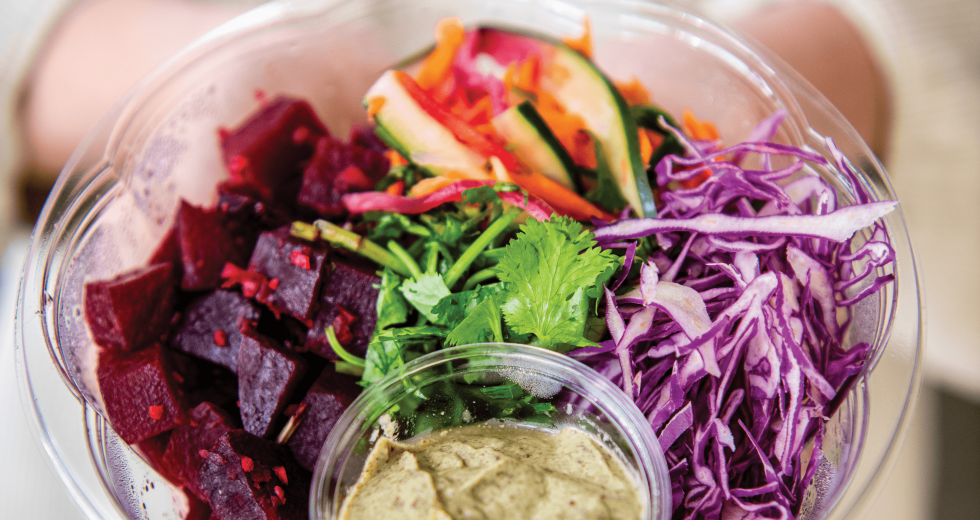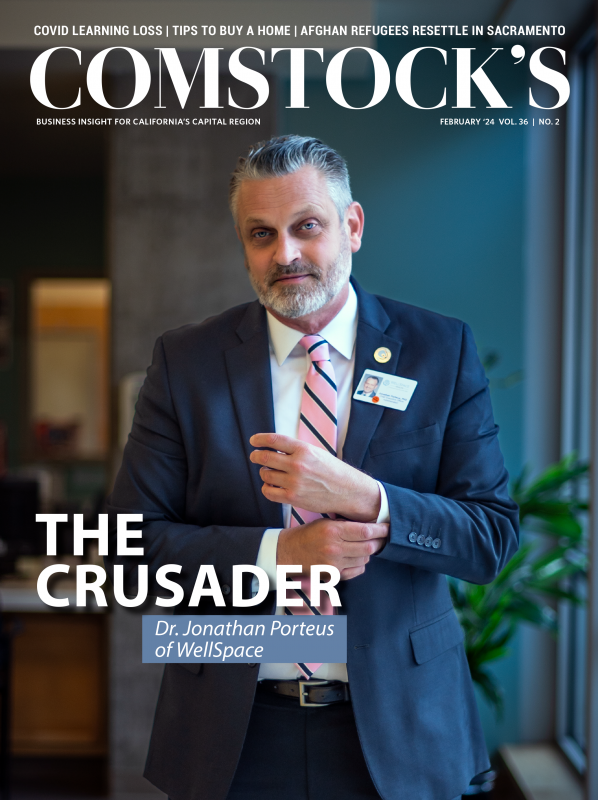Sun & Soil, the decade-old Sacramento juice bar, isn’t just about juice anymore. In 2022, the business merged with local roastery Insight Coffee and became Sun & Soil Health Company, underscoring its broadening emphasis on clean, organic, nutrient-dense foods. Founding partner Chris Ryan looks forward to the launch of a full commercial kitchen at the combined companies’ 10,000-square-foot West Sacramento headquarters, which will allow Sun & Soil to scale up and add more to its lineup of frozen meals, drinks and desserts — all gluten-free and with many vegan options.
But what Ryan, who leads strategy and leadership, is most excited about is the 21-day “hyper-focused, jumpstart-your-health program,” launched this year as the Pure Organic Health Program. The program uses clean eating, moderate physical activity and technologies like blood glucose monitoring and an Oura ring, a wearable device that measures biometrics, to help participants quickly turn their health around. “There’s a lot of people who are plenty successful in their careers, and they just don’t have time to slow down and get the right food,” Ryan says. “We can help them.”
It’s a long way from the cold-pressed green juices that first put Sun & Soil on the map — and it’s part of a trend. Across the region, health food businesses like Sun & Soil are branching beyond acai bowls and chia-seed puddings to offer customers a broader spectrum of health programs and treatments. From juice cleanses to lattes with a side of ionic detoxification, the spread of these businesses demonstrates that customers are willing to invest in their health — and are looking beyond the traditional health care system to do so. The Global Wellness Institute reports that the wellness industry is a $5.6 trillion business expected to grow to $8.5 trillion by 2027.
Ryan, who is also the president of Shamrock Surgical, a medical distribution company that sells cardiac surgical devices, sees the rising costs of treating and managing chronic diseases like diabetes and hypertension. Despite more medicines, interventions and treatments, diabetes has become an “epidemic of its own,” Ryan says. “The health system is designed to treat broken people,” Ryan continues. “And it’s amazing what medical intervention can do … but there has to be a better way.”
Drink up
Not far from Sun & Soil’s West Sacramento headquarters, another cafe is offering drinks and desserts along with alternative medicine: Water & Salt, a water purification and health food store that husband-and-wife team Juan and Saki Chicas opened in 2011. Water & Salt serves low-acidic and keto coffees, CBD tonics, teas and supplements, and provides education on detoxification protocols. But it isn’t all about restricting — the cafe also serves Gunther’s ice cream and is known for having the best Hawaiian shave ice in town.
Water & Salt sells hydrogen water, healing crystals and a variety
of supplements in addition to low-acidity coffee, Gunther’s ice
cream and other treats.
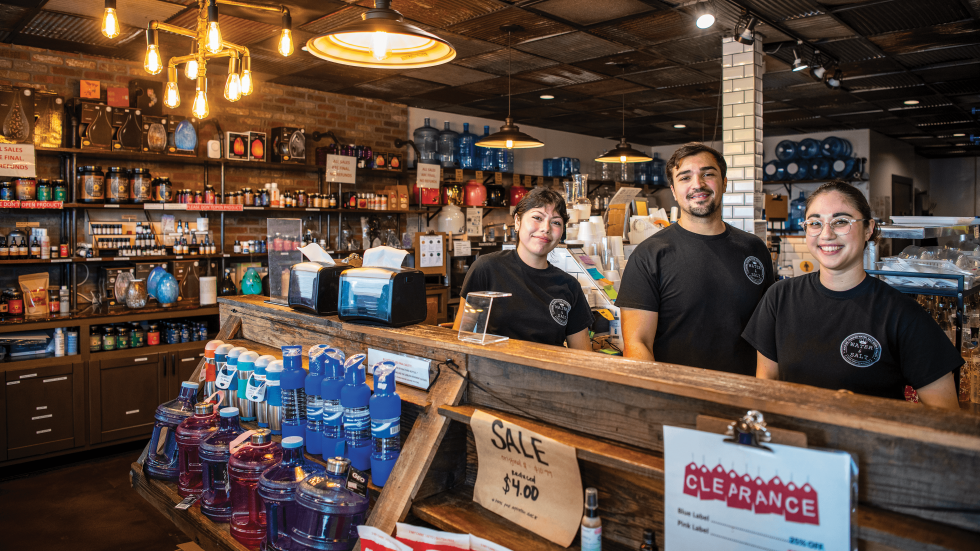
Juan Chicas’ idea to start a wellness store stems from his upbringing in Oak Park. His father had rheumatoid arthritis and didn’t like how prescriptions made him feel, so the family eliminated processed foods and ate vegetables grown in their garden. His parents, now in their 70s, are the “epitome of health,” Juan says. “And water played a role. … If we’re 70 percent water, then it should make a huge difference in our overall wellness and health if we’re drinking the right type of water.”
Juan and Saki use structured alkaline water fortified with over 70 minerals in their drinks and desserts. The store includes 18 vending stations for different kinds of water, including from the John Ellis brand. Engineer John Ellis claims to have invented a machine that can distill water hundreds of times, allowing more oxygen delivery to cells. He has received warning letters from the Federal Trade Commission for marketing his water as a treatment for COVID-19.
Why are people drawn to alternative medicine practices despite controversies and sometimes-shaky evidence? The study “Alternative medicine: A psychological perspective,” published in the journal Personality and Individual Differences, offers some clues. According to the study, alternative medicine supporters tend toward intuitive rather than rational thinking, meaning they may be willing to overlook logical jumps if something feels right to them. But it’s also true that mainstream treatments fail or are prohibitively expensive for many people. In these cases, alternative treatments may seem more promising or accessible — and many can have demonstrable benefits.
Juan Chicas says he doesn’t expect people to be “fanatic” about health as he is, but he can still help change people’s lives. “If you can get people just off of soda, for example,” he says, “you could probably avoid them from getting diabetes … and add 10 to 15 years of life to somebody. That’s huge.” Indeed, Harvard reports that people who consume 1-2 cans or more of sugary drinks a day have a 26 percent greater risk of developing type 2 diabetes than people who rarely have such drinks. Water is a healthy alternative.
Hitting reset
Walk into TeaToxery in Tracy and you can see the juxtaposition of food and drink and alternative health care right in front of you. The right wall of the business is lined with foot bath stations, while the left side is occupied by a tea and coffee bar. “I wanted to bring normalcy to it, right,” says owner Cathrine Oclassen, “by creating a social environment (where) people are detoxing right in front of you, and nobody even thinks twice about it.”
Oclassen opened the business as My Detox Lounge in 2015 but renamed it this month to avoid the association between “lounge” and nightlife. She instead wanted to create an atmosphere she calls the “Starbucks of health,” where people can connect over organic, low-acidic herb-infused coffee or a detox boost tea while engaging in a wellness session. Oclassen chose Tracy for its affordability, but it was also a prototype business, and she needed a smaller community where she felt residents might be more receptive. In 2015, she says there weren’t many alternative health businesses, so she conducted workshops to increase awareness.
The ice in Water & Salt’s Hawaiian-style shave ice is made with
alkaline water, which proponents believe can help neutralize acid
in the body and prevent chronic disease.
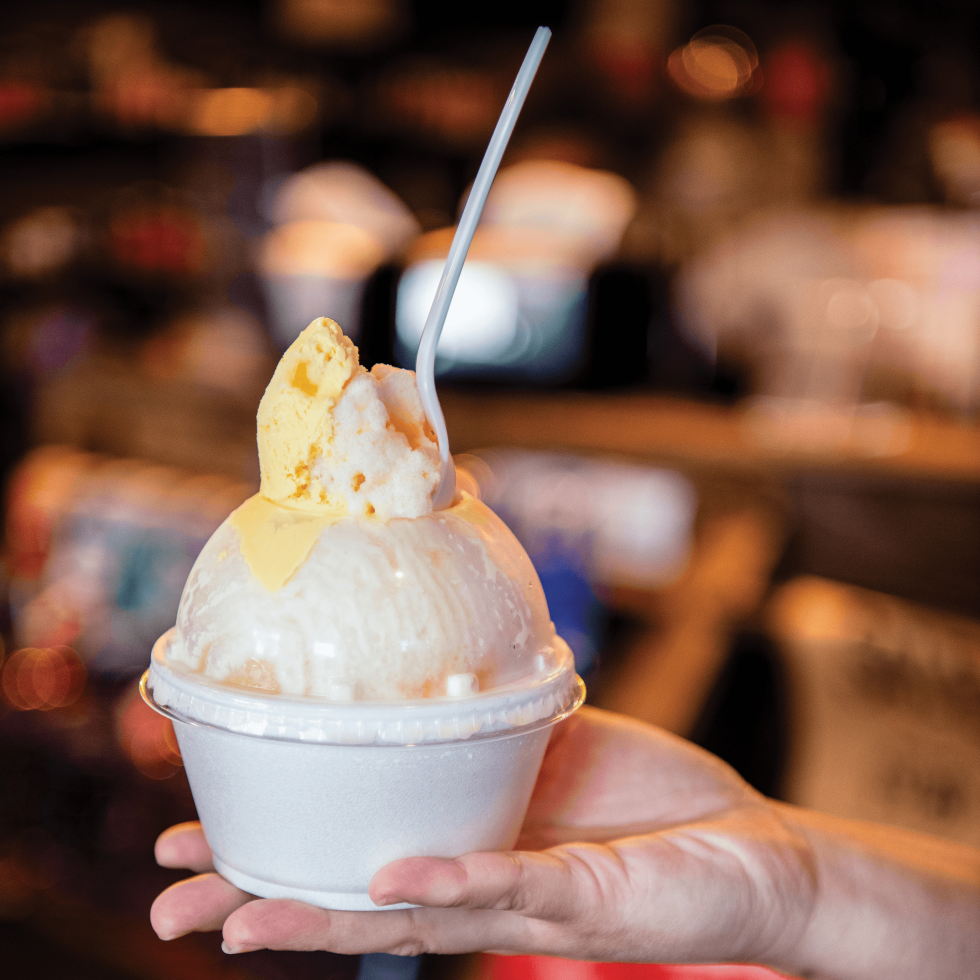
The crux of the business is the ionic detoxification foot baths, designed to pull toxins out of the body through the feet. Ionic detox baths, which have been popular since the early 2000s, involve metal electrodes that rust due to electrolysis when submerged in warm salted water, turning the water brown; the color change is said to be a result of the toxins in the user’s body. Though there is little evidence for this claim, a warm foot bath can certainly be soothing, and some people find comfort in ionic detox while going through chemotherapy or other treatments.
Oclassen says she believes in the services she offers because she knows they helped her. She was inspired to start a wellness cafe after going through a period of irritable bowel syndrome and depression. An EMT, phlebotomist and surgical technician, she dropped out of nursing school because she felt “something was missing” in the health care system. But when she learned about holistic healing and treating the whole person, Oclassen realized her philosophies differed from modern medicine. Her medical background and personal experience allow her to create a concept that fills in that “void in the middle,” she says.
Moving forward, Oclassen is expanding her line of services to include food and a sea moss bar, spotlighting the benefits of Irish moss, the edible seaweed species behind the popular food additive carrageenan. She also recently launched her mobile detoxing unit, equipped with a tea bar, oxygen bar, essential oil chamber and detox foot baths. It’s designed for bachelorette and detox parties, group outings and corporate wellness events. Her vision is to create express lounges at airports and, hopefully, at every corner, like McDonald’s or Starbucks.
Oclassen admits it’s been tough reaching the community. “It has been intense to break those molds, but I’m happy to say I believe after all these years, they’ve warmed up to us,” she says.
Ryan of Sun & Soil agrees that education is key to the success of his business, as well as helping people make more conscious choices about the relationship between food and their bodies. “The body is an amazing thing,” Ryan says. “If you don’t beat it up — if, instead of giving it garbage, you give it clean — the body will take care of the rest.”
Stay up to date on business in the Capital Region: Subscribe to the Comstock’s newsletter today.
Recommended For You
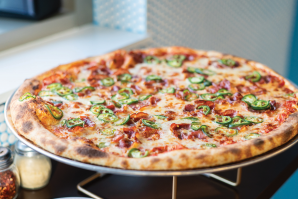
Reeling Them In
Local restaurants use Instagram Reels and TikTok to attract customers
Your experience of social media may be as a fun time-waster, an angst-producing FOMO (fear of missing out) machine or the reason you know your Uncle Dennis believes in ancient aliens. But to many restaurant owners, social media is a necessity.
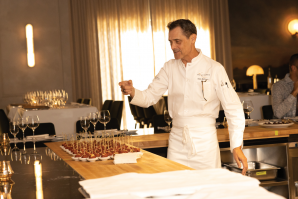
Star Power
The Michelin guide helps put Sacramento restaurants on the map
Winning a Michelin star is something ambitious chefs spend a lifetime dreaming of and working toward. A star from the world-famous Michelin Guide promises life-changing benefits: Money. Customers. Fame. There’s even a term for it: the Michelin effect.
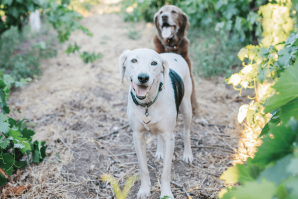
Going to the Dogs
Lodi vineyards and nurseries test canine pest detection
The solution to one of the wine industry’s most costly and threatening problems may be coming soon from Lodi — and it will trot out on four feet, tails a-wagging, with noses keener than even advanced scientific equipment.
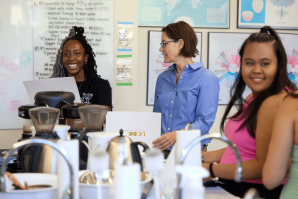
Brewed to Perfection
The most popular course at UC Davis teaches engineering students the scientific art of making coffee
Coffee is a $225 billion industry in the U.S., providing 1.6 million jobs. But are we growing, roasting and making the best cup possible? That’s what an innovative program at the UC Davis School of Chemical Engineering has been working on for the past 10 years.
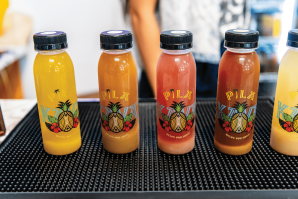
The Kava Capital
Sacramento has a thriving kava scene. Will newcomer Pila Kava offer something new?
The first sip of Pila Kava hits like a low dose of novocaine, numbness spreading across the surface of the tongue. This soon fades into a background hum as the flavors bloom. The first note is the earth and spice of the kava itself — the root of a pepper variety native to the South Pacific.
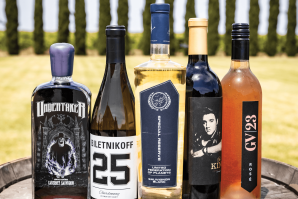
From Stargazing to Star-Sipping
How a Lodi family winery bottles the entertainment industry
Some moments in pop culture deserve a toast, such as when Season 3 of “Star Trek: Picard” sent critics and “Trekkies” on a warp-speed ride of jubilation, most hailing it the franchise’s best story in decades. Thanks to a small winery in Lodi, enthusiasts who were on that galactic high could pour their pleasure right into a glass.



